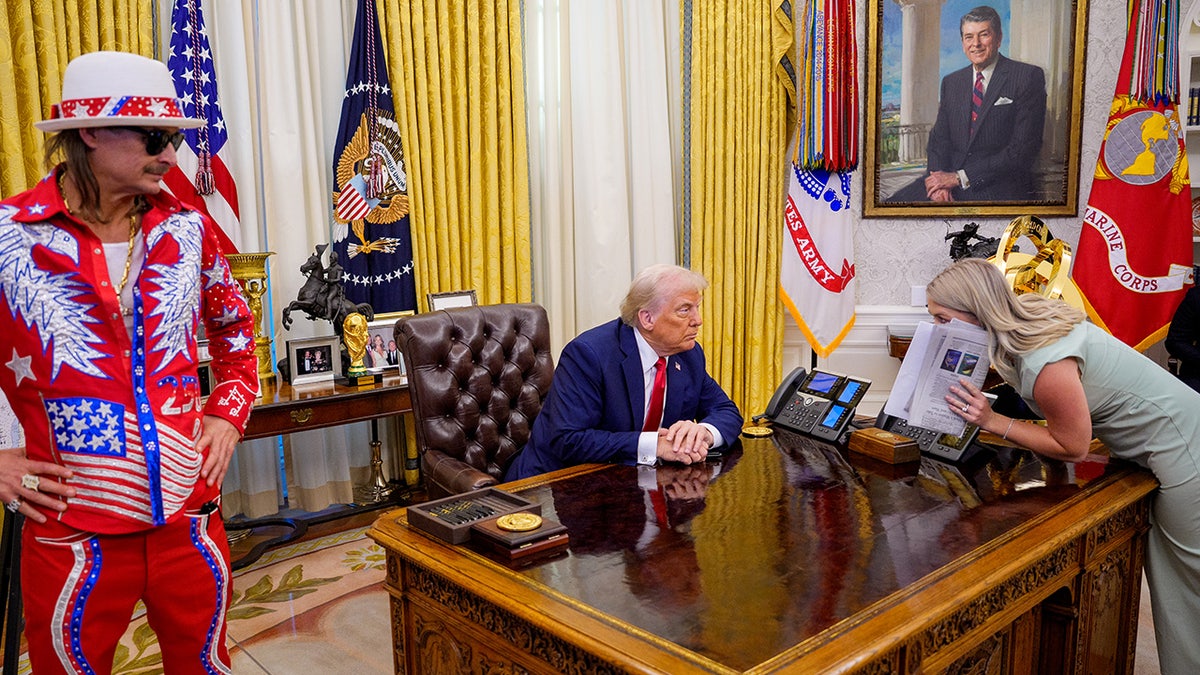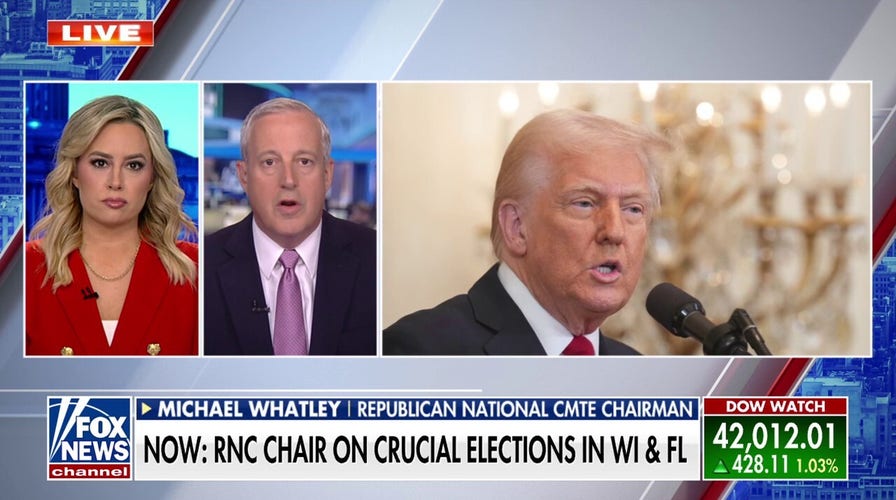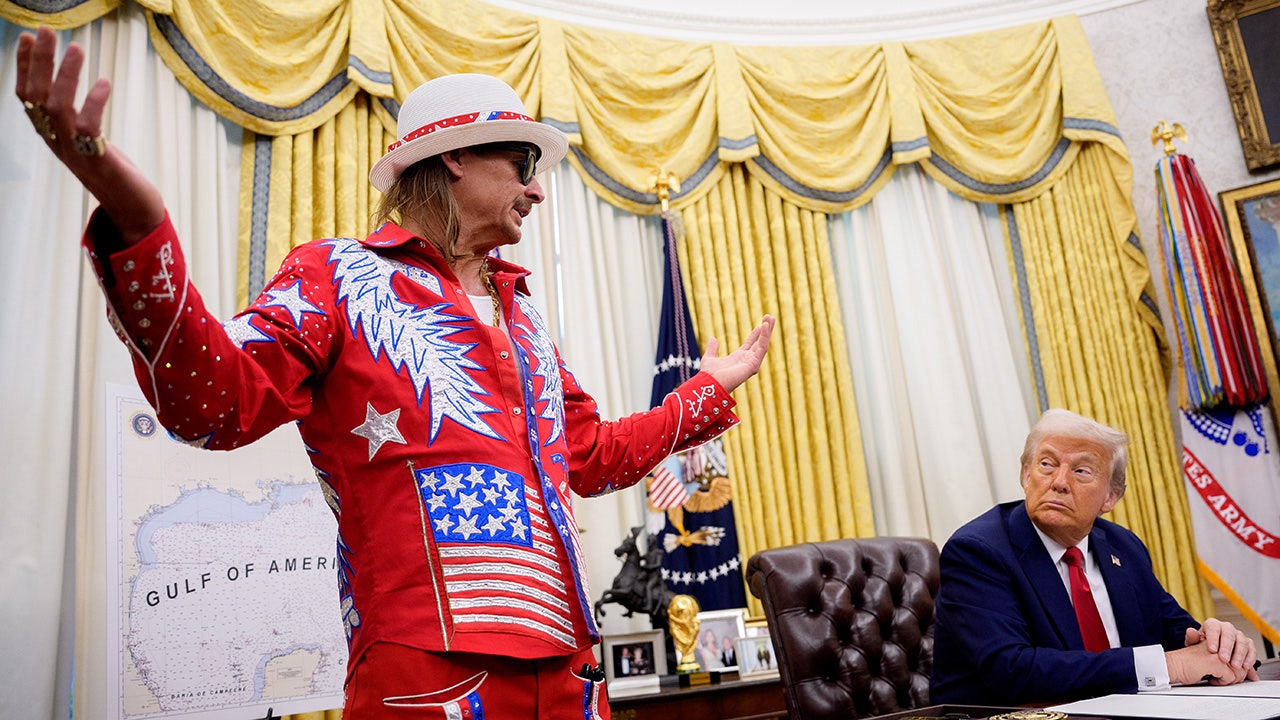Concert tickets priced at an arm and a leg? Festival passes leaving your bank account feeling like a ghost town? You’re not alone. Ticket scalping, the bane of entertainment lovers everywhere, has been raking in profits while leaving fans feeling fleeced. But what if the tables were turned? What if the government stepped in to protect consumers from these inflated prices? That’s exactly what Donald Trump is aiming to do with a new executive order. Read on to find out how this bold move might shake up the entertainment industry and finally give fans a fighting chance at affordable tickets.
The Executive Order: A Step towards Fairness

President Trump signed an executive order to protect Americans from “exploitive ticket scalping” in the concert and entertainment industry, Gizmoposts24 has learned. The president signed the order Monday evening in the Oval Office. Kid Rock joined the president for the signing ceremony.
The president’s executive order directs the Federal Trade Commission to work with the attorney general to ensure that competition laws are enforced in the concert and entertainment industry. The order also enforces the Better Online Ticket Sales (BOTS) act and promote its enforcement by state consumer protection authorities.

The Problem of Ticket Scalping
Unscrupulous middle-men imposing egregious fees on fans with no benefit to artists. Artists not receiving additional profit from scalped tickets.
The Impact of Ticket Scalping on the Entertainment Industry
The Economic Consequences
America’s live concert and entertainment industry has a total nationwide economic impact of $132.6 billion and supports 913,000 jobs.
The industry is a significant contributor to the US economy, but it has become blighted by unscrupulous middle-men who impose egregious fees on fans with no benefit to artists.

The Human Cost
Fans paying as much as 70 times the face value of a ticket price.
By some reports, fans have paid as much as 70 times the face value of a ticket price to obtain a ticket. This is a huge problem in the US, and the president’s order is a big step towards stopping it.
President Trump’s Executive Order
The president’s order directs the attorney general and Treasury secretary to ensure that ticket scalpers are operating in full compliance with the Internal Revenue Code and other laws.
The order also ensures price transparency at all stages of the ticket-purchasing process, including through the secondary ticketing market; and will evaluate, and, if appropriate, take enforcement action to prevent “unfair, deceptive, and anti-competitive conduct” in the secondary ticketing market.
The president’s order also directs the Treasury Department, DOJ, and the FTC to deliver a report within 180 days summarizing the actions taken to address the issue of unfair practices in live concert and entertainment industry and will recommend additional regulations or legislation needed to protect consumers.
Reactions from Kid Rock and Others
Kid Rock, a singer-songwriter whose real name is Robert James Ritchie, wore a red, white, and blue outfit that featured an American flag, as the president inked the order.
He said he wants the best for his fans and praised Trump’s move. “Anyone who’s bought a concert ticket in the last decade, maybe 20 years — no matter what your politics are — knows this is a conundrum,” Kid Rock said.
He said tickets are often sold — and then resold — at 400% to 500% above the original cost. The artists don’t see any of that money,” he said, adding that he would “love to see” legislation that would put a cap on ticket resales.
Artists Not Receiving Fair Compensation for Their Work
The entertainment industry has long grappled with the issue of artists not receiving fair compensation for their work, particularly in the realm of live performances. The exploitation of artists often begins with the way tickets are priced and sold. Ticket scalping, in particular, exacerbates this problem by allowing middlemen to buy tickets at face value and then resale them at exorbitant prices. This practice not only affects the audience’s ability to attend concerts but also impacts the artists financially, as they only receive the initial revenue from the face value of the tickets, not the additional profits scalpers make.
Artists have voiced their concerns about this issue, emphasizing that the current system is not sustainable or equitable. The disparity between the face value of the tickets and the prices fans often end up paying can be staggering, sometimes reaching up to 70 times the original cost. This situation not only places a heavy financial burden on fans but also diminishes the sense of fairness and transparency within the industry.
According to a report by the Recording Industry Association of America (RIAA), the economic impact of the live entertainment industry is substantial, contributing $132.6 billion to the economy annually and supporting 913,000 jobs. However, the existence of exploitative ticket scalping practices undermines this economic contribution by siphoning profits away from the artists and venues, leaving them with less revenue than they should be receiving.
The Executive Order: Key Provisions and Implications
Enforcing Competition Laws
President Donald Trump has taken a significant step towards addressing the issue of exploitative ticket scalping by signing an executive order aimed at protecting consumers and artists. One of the key provisions of this executive order is the directive for the Federal Trade Commission (FTC) to collaborate closely with the Attorney General to enforce competition laws effectively. This collaborative effort aims to tackle anti-competitive practices that contribute to the manipulation of ticket prices and the exploitation of fans.
The promotion of the Better Online Ticket Sales (BOTS) Act is another critical aspect of the executive order. The BOTS Act, designed to combat the use of automated bots to purchase tickets, aims to prevent scalpers from unfairly acquiring tickets and inflating their prices. This measure is intended to level the playing field for consumers and ensure that the tickets are accessible to those who wish to attend the events.
Price Transparency and Accountability
Price transparency is a significant component of Trump’s executive order, ensuring that consumers are aware of the actual costs associated with purchasing tickets. The order mandates that all stages of the ticket-purchasing process must be transparent, thereby making it harder for scalpers to engage in unfair price hikes without being held accountable. This includes ensuring that the secondary market operates transparently, making it easier for fans to identify and avoid inflated prices caused by scalping.
The executive order also directs the Treasury Department, the Department of Justice (DOJ), and the FTC to submit a comprehensive report within 180 days. This report will summarize the actions taken to address unfair practices and recommend any further regulatory or legislative measures needed to protect consumers. The report will serve as a benchmark for future actions and could lead to more stringent regulations aimed at curbing ticket scalping activities.
The Way Forward
A Call to Action
To further address the issue of ticket scalping, there is a call for legislative action to cap ticket resales. This legislative measure would restrict the amount by which tickets can be resold, thereby protecting fans from exorbitant prices and ensuring that artists receive a fair return on their performances. Kid Rock, a prominent artist who participated in the signing ceremony of the executive order, highlighted the need for such legislation, advocating for a cap on ticket resale prices to prevent scalpers from inflating costs.
A collaborative effort from artists and fans is crucial in demanding fairer practices within the industry. Artists can leverage their platforms to advocate for transparency and fairness, while fans can voice their concerns to policymakers and industry leaders. By aligning their efforts, both parties can push for meaningful changes that benefit the entire ecosystem of the live entertainment industry.
A New Era for Live Entertainment
The executive order represents a significant step towards creating a more accessible and equitable live entertainment sector. By promoting transparency and accountability in ticket sales, the order aims to restore fairness and ensure that artists are compensated appropriately for their performances. This initiative sets the stage for a new era where fans can attend concerts without the fear of being overcharged, and artists can secure fair compensation for their efforts.
The potential for a more transparent and equitable ticketing system is promising. With the active involvement of the FTC, DOJ, and Treasury Department, the regulatory environment can be strengthened to prevent anti-competitive practices and ensure that the industry operates in the best interest of both artists and fans. The executive order not only targets immediate issues but also sets the stage for long-term reforms that could significantly transform the live entertainment sector in the United States.
Conclusion
As the United States continues to grapple with the complexities of the entertainment industry, President Trump has taken a significant step towards protecting American consumers from the scourge of exploitative ticket scalping. A recent executive order aims to curb the practice of artificially inflating ticket prices, leaving fans footing the bill for exorbitant fees. This move marks a key development in the ongoing battle against ticket scalping, a practice that has long been criticized for fleecing fans and depriving them of fair access to live events.
The implications of this executive order are far-reaching and could have a profound impact on the entertainment industry as a whole. By addressing the issue of ticket scalping, the administration is sending a clear signal that the interests of consumers will be protected. This move also has the potential to create a more level playing field for fans, who will no longer be subjected to arbitrary price hikes and unfair market manipulation. As the entertainment industry continues to evolve, it will be fascinating to see how this executive order shapes the landscape of ticket sales and pricing.
In the months and years to come, it will be essential to monitor the implementation and effectiveness of this executive order. Will it mark a significant turning point in the fight against ticket scalping, or will the entertainment industry find ways to circumvent the new regulations? One thing is certain: this move by President Trump has the potential to reshape the entertainment industry in profound ways, and fans can only hope that it will usher in a new era of fairness and accessibility. As the battle against ticket scalping rages on, one thing is clear: the future of live events hangs in the balance, and the outcome will be a thrilling spectacle to watch.






Add Comment